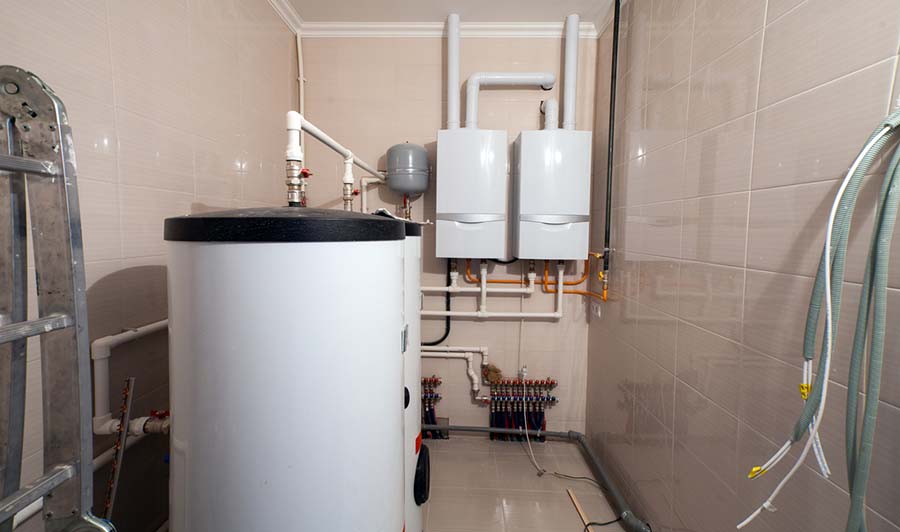This post in the next paragraphs involving Common Hot Water Heater Problems is incredibly remarkable. Read it for yourself and see what you think about it.

A hot water heater is one of one of the most vital fundamental home appliances that can be located in a residence. With water heaters, you don't require to go through the stress and anxiety of heating water by hand whenever there is a need to wash, do the laundry, or the recipes. Nonetheless, there is constantly an opportunity that your hot water heater would act up as with many mechanical devices.
It is important to note any kind of little malfunction as well as tackle it promptly prior to things leave hand. Most times, your water heater starts to malfunction when there is an accumulation of sediments as a result of continuous use. As a safety measure, regular flushing of your hot water heater is recommended to stop sediment accumulation as well as avoid functional failure.
Typical water heater emergencies and how to take care of them
Leaky hot water heater storage tank.
A leaking storage tank could be an indicator of deterioration. It could trigger damage to the floor, wall as well as electrical devices around it. You could also go to danger of having your apartment or condo swamped. In this scenario, you need to switch off your hot water heater, enable it to cool down, and also meticulously try to find the source of the trouble. Sometimes, all you need to do is to tighten a few screws or pipe links in cases of small leaks. But if this does not function and the leak persists, you might need to employ the solutions of a professional for a proper replacement.
Changing water temperature.
Your water heater might begin creating water of different temperature levels normally ice scalding or cool hot. There might be a requirement to change either the heating or the thermostat system of your water heating unit.
Inadequate warm water
Dealing with an insufficient supply of hot water can be aggravating. It may be that the water heater can't support the warm water need for your home. To take care of this issue, you might attempt to readjust your heating system's temperature dial and await a couple of minutes. If the trouble lingers, you can request the aid of a professional plumber. Alternatively, you could upgrade your hot water heater to one with a bigger ability.
Tarnished or odiferous water
When this happens, you require to recognize if the concern is from the water or the storage tank resource. You are certain that it is your water heater that is faulty if there is no amusing scent when you run cool water. The smelly water can be triggered by rust or the build-up of bacteria or debris in the hot water heater container. You can attempt flushing out your storage tank or replacing the anode if the problem lingers once you observe this. The feature of the anode is to clear out microorganisms from your container. Considering that the anode pole substitute needs a detailed expertise of your water heating unit, you will certainly need the aid of a professional.
Final thought
Some house owners disregard little warning and minor faults in their hot water heater system. This only results in further damage as well as a feasible full breakdown of your appliance. You should take care of your hot water heater mistakes as quickly as they come near avoid more costs and unneeded emergency problems.
With water heating units, you do not require to go through the anxiety of home heating water by hand every time there is a requirement to take a bath, do the laundry, or the dishes. Your water heater can start producing water of various temperature levels generally ice cool or hot hot. It may be that the water heating unit can't support the warm water demand for your apartment. If there is no funny odor when you run cool water, then you are specific that it is your water heating system that is damaged. The odiferous water can be created by corrosion or the buildup of microorganisms or debris in the water heating unit storage tank.
Water Heater Burst: Why This Happens And What To Do Next
Water Heater Explosion Warning Signs
Since storage water heaters are made of metal and store large volumes of heated water, they carry an increased risk of leaking or even exploding as they begin to rust at the fittings and seams over time. If the thermostat controlling the water temperature within the tank is faulty, or if mineral buildup inside the water heater prevents the thermostat from sensing the water’s temperature correctly, the water could become overheated. This will expand its volume within the tank, causing it to press at the tank’s fittings and seams. If these fittings and seams are rusted or corroded, the pressure could result in a leak or even an explosion.
Here are some risk factors and warning signs of an increased risk of water heater leak or explosion:
Your water heater is more than 10 years old. Your water heater makes clanking, banging or rumbling noises as it heats up, indicating that sediment has built up and hardened inside the tank. There is visible rust on the outside of the water heater, especially located at the pipe fittings or the seams that run down the tank. There is rusty water coming from your water heater, indicating that there may be rust building up inside. Your water heater is leaking, which could indicate either a crack somewhere in the tank or a malfunctioning temperature-and-pressure (T&P) relief valve. What To Do When Water Heater Leaks
If you find water dripping or seeping out of your water heater, or pooling around it, it means your water heater is leaking. If you find a leak, it may be best to call a plumbing professional to diagnose the problem and determine how best to handle it. If you choose to tackle it on your own, there are a few things you can do.
TURN OFF THE POWER
Next, shut off the power to the hot water tank at your home’s electrical breaker box. If you don’t shut off the power, the heating elements within the tank could continue to stay hot, which could pose a fire risk.
If you have a gas-powered water heater, you’ll also need to shut off the gas line leading into the tank.
FIND THE LEAK
Now it’s time to determine where the leak is coming from. Likely locations are the T&P valve, the drain valve or one of the pipes or fittings that feed into the top of the tank. If you see any rust or corrosion on the outside of your water heater’s tank, pipes or fittings, these could also be the source of the leak.
REPAIR THE LEAK
Once you determine the source of your water heater leak, you’ll have a better idea of what steps you need to take to fix the problem. It may be a simple fix—such as using a wrench to tighten fittings or replacing the T&P valve—but it may be something more complicated. You may even need to drain the tank, remove the water heater and install a new one.
https://www.abchomeandcommercial.com/blog/water-heater-burst/

As a keen person who reads on Warning Signs You Need Water Heater Repairs, I think sharing that topic was important. Sharing is nice. Who knows, you will be doing someone a favor. We love reading our article about Common Hot Water Heater Problems.
Address plumbing needs.